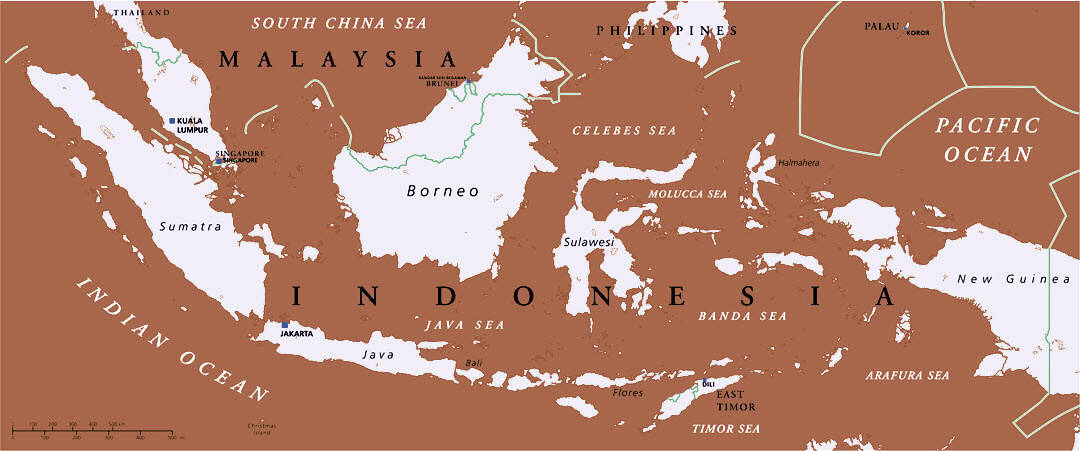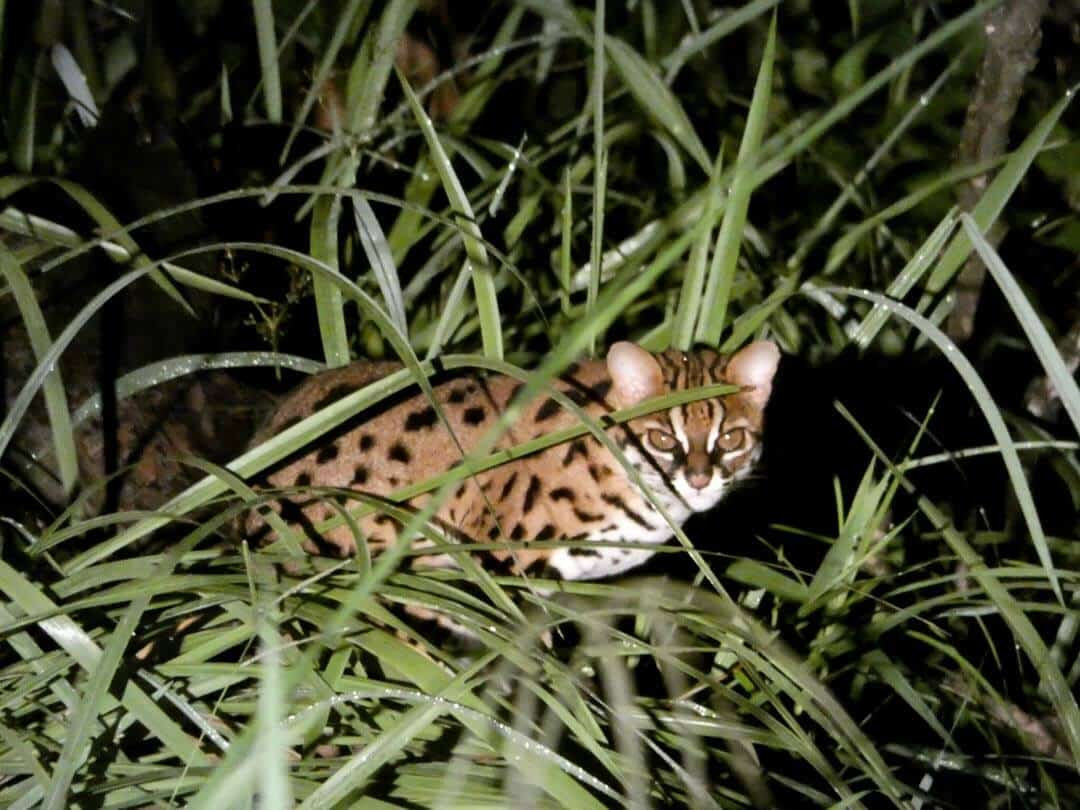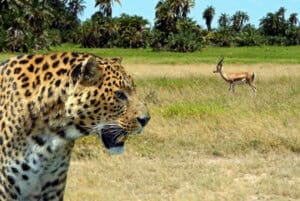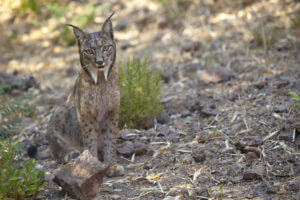Image: Kai Squires, CC BY 4.0, via Wikimedia Commons
The Javan leopard cat, also known as the Sunda leopard cat, is a small wild cat found on several Sundaland islands, a biogeographical region of Southeast Asia, including Bali, Borneo, Sumatra, Java and the Philippines, usually in forested areas.

Scientific name: Prionailurus javanensis
Conservation status: Not ranked, population possibly declining.
Subspecies:
- Prionailurus javanensis javanensis
- Prionailurus sumatranus
Lineage: The Sunda leopard cat belongs to the Leopard cat lineage. The lineage includes two genus (Octocolobus and Prionailurus) and five other species – the flat-headed cat, leopard cat, Pallas’s cat, rusty-spotted cat and fishing cat.
Javan leopard cat facts
- The Javan leopard cat is smaller than a domestic cat
- Inhabits various Sundaland islands
- Has a home range of approximately 1.4 squre miles
- They have been recorded at elevations below 66 feet.
- The Javan leopard cat hunts at night.
- It’s nighttime activity is similar to the flat-headed cat.
More about the Sunda leopard cat
The Sunda leopard cat inhabits several islands in Indonesia, and is considered a different species than the leopard cat that inhabits the mainland. The Sunda cat was first named in 1816. It is believed the Borneo leopard cat population exapnded to Sumatra and Palawan (a Philippines Island) when they were connected , following the Toba eruption , a supervolcanic eruption that took place 74,000 years ago.
Physical appearance
The Sunda leopard cat has long legs and a web between its toes. Its fur is greyish-brown with black lines running from the inside corner of each eye to the top of the head. Like other members of the Prionailurus species, it has a white muzzle and rounded ears. Leopard cats from Bali, Java and Palawan are usualy a light to yellow grey with small spots, and brokenn stripes along the back. Cats from Borneo, Sumatra and Negros have a warmer-colored yellow fur and with more visible spots. It is a slender cat with black ears that have a white spot. The cat’s body also has black spots in different sizes and colors.
Average weight: 1.2 – 8.4 lbs.
Averang length (including tail): 15.3 to 26.0 inches
Average tail length: 7.5 to 13 inches.
Location and habitat
You can find the Javan leopard cat on the island of Panay (the 6th largest island in the Phillipines), Cebu (a province in the Phillipines with one main island and 167 surrounding islands and islets), Palawan (the largest province in the Philipines), Negros (the Phillipines negro island region), Java, Baili, Borneo, Sumatra and Tebingtinggi (a city near the Eastern coast of the eastern coast of north Sumatra province). They typically inhabit lowland tropical forests, but they have also adapted to living near rubber, oil palm and sugrcane plantations. Their average home range is approximately 1 1/2 square miles.
Hunting and prey (diet)
Javan leopard cats prey on rodens, including the Polynesian rat (the third-most widespread species of rat in the word), ricefiled rat (found throughout Southeast Asia), tanezumi rat (the Asian house rat) and house mouse. Their diet also consists of amphibians, lizards and perching birds found in sugarcane fields.
Conservation issues
Like many wild cats, Javan leopard survival is impacted by habitat loss, including deforestation.




















0 Comments